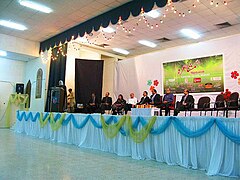
Muscat is the capital and most populated city in Oman. It is the seat of the Governorate of Muscat. According to the National Centre for Statistics and Information (NCSI), the total population of Muscat Governorate was 1.4 million as of September 2018. The metropolitan area spans approximately 3,500 km2 (1,400 sq mi) and includes six provinces called wilayats. Known since the early 1st century AD as an important trading port between the west and the east, Muscat was ruled by various indigenous tribes as well as foreign powers such as the Persians, the Portuguese Empire and the Ottoman Empire at various points in its history. A regional military power in the 18th century, Muscat's influence extended as far as East Africa and Zanzibar. As an important port-town in the Gulf of Oman, Muscat attracted foreign tradesmen and settlers such as the Persians, Balochis and Sindhis. Since the ascension of Qaboos bin Said as Sultan of Oman in 1970, Muscat has experienced rapid infrastructural development that has led to the growth of a vibrant economy and a multi-ethnic society. Muscat is termed as a Beta - Global City by the Globalization and World Cities Research Network.
Salalah is the capital and largest city of the southern Omani governorate of Dhofar. Its population in 2009 was about 197,169.

Miranda House is a constituent college for women at the University of Delhi in India. Established in 1948, it is one of the top ranked colleges of the country and ranked as number 1 for consecutively six years.

The Sultanate of Muscat and Oman, also known briefly as the State of Muscat and Oman during the rule of Taimur bin Feisal, was a sovereign state that encompassed the present-day Sultanate of Oman and parts of present-day United Arab Emirates and Pakistan, in the second half of the 19th century and 20th century. Ruled by the Busaid dynasty, it was established as a result of the partition of the Omani Empire upon the death of its last ruler Said bin Sultan. The Sultanate transitioned into a new form of government after the palace coup of 23 July 1970 in which the sultan Said bin Taimur was immediately deposed in favor of his son Qaboos bin Said.
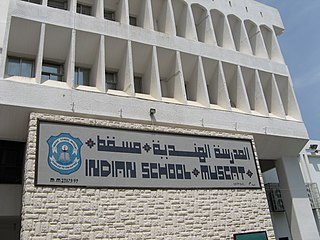
Indian School Muscat is an Indian school in the Darsait area of Muscat, Oman.
The Education in Oman is provided free of charge up to end of secondary education, though attendance is not mandatory at any level. In 1970 there were only three formal schools with 900 students in the whole state. Oman's national educational program expanded rapidly during the 1970s and the 1980s. In 2006–2007 about 560,000 students attended 1053 public schools. The number of students in private schools is about 65,000. There are also extensive programmes to combat adult illiteracy. Sultan Qaboos University, the only national university near Muscat, was founded in 1986, and in 2006 it had 13,500 students. The Human Development Report found the literacy rate to be 93.0% in adults, up from 54.7% in 1990. For the same period, the youth literacy rate increased from 85.6 to 97.3%. Public expenditure on education was reported to be 4.6% of GDP and 26.1% of total government spending.
Punjab University College of Information Technology (PUCIT) is a college of computer science and information technology at the University of the Punjab located in Lahore, Pakistan. The college is located on the university's Allama Iqbal Campus in Bahawalpur Block near old Anarkali and PUCIT Quaid-i-Azam Campus is located on Syed Kabeer Ali Shah road, Canal Bank, Lahore. PUCIT is one of the top institutes of computer learning with its degree being awarded 'w' category (Highest) by Higher Education Commission of Pakistan.
Knowledge Oasis Muscat (KOM) is a 1 million square meter technology park located near Muscat International Airport, Oman. KOM neighbours Rusayl Industrial Estate–the Sultanate's largest industrial park–and Sultan Qaboos University. For start-up companies that require a total support package, KOM created The Knowledge Mine (TKM) a business incubator program that offers tenants a combination of subsidized offices and utilities in addition to a variety of business support program services. KOM is also home to the Middle East College and the Waljat Colleges of Applied Sciences. Currently, the KOM campus boasts an undergraduate population of approximately 3,000 students.
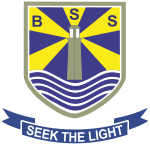
The Beaconhouse School System is a private school system mostly operating throughout Pakistan. It was established in November 1975 in Lahore, Pakistan as the Les Anges Montessori Academy for toddlers by Nasreen Mahmud Kasuri, wife of former Foreign Minister of Pakistan, Khurshid Mahmud Kasuri. It has now expanded in many different countries.

The German University of Technology in Oman (GUtech) is a private university in Halban, Oman. It was established in 2007 in Muscat in collaboration with RWTH Aachen University in Germany, one of the leading and top-ranked universities of technology in Europe. GUtech was one of the first universities in Oman to receive international accreditation for all its BSc and BEng programs. In the Academic Year 2019 more than 2200 students were enrolled in GUtech's programs. GUtech is now one of the best universities in Oman.
Waljat College of Applied Sciences (WCAS) is one of Oman's leading higher education institutes. It was established in October 2001 by H.E. Dr. Omar Bin Abdul Muniem Al Zawawi in academic partnership with Birla Institute of Technology, India, one of India's premier universities. It is the second International Centre of BIT, Mesra. It provides education in the specialized branches of Engineering, Information Technology and Business Administration.
The Oman Children's Museum is a children's science museum, located near Qurum Nature Park off Sultan Qaboos Street in a white-domed building in Muscat, Oman.

Indian School Darsait is an Indian School in Muscat, under the supervision of the Indian Embassy in Oman. This school is affiliated to Central Board of Secondary Education Of India. It is located in Darsait, Muscat, in the Sultanate of Oman.
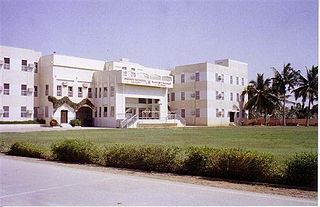
The Indian School Salalah is an Indian-run, self-financing, co-educational institution, primarily established to meet the academic needs of children of Indian expatriates working in the Sultanate of Oman in the Persian Gulf. The school also admits children of other nationalities. The school is located in the Dahariz area, of Salalah town, in the southern governorate of Dhofar.
Sohar University was established in 2001 as the first private university in Oman. It was granted degree awarding powers by the Oman Ministry of Higher Education, with the authority to provide programs and courses whose successful completion leads to academic awards.
Oman Medical College is the second medical college in the Sultanate of Oman, and is situated in Muscat and Sohar in the North Batinha region. The pharmacy campus is located in Bowsher. First year is taught as a foundation course and second and third years are completed before the medical school years of Sohar campus. Some part of the coursework is also completed in Rustaq with students taking courses with doctors at Rustaq hospital. The associated hospital with the Sohar campus is Sohar hospital, one of the biggest governmental hospitals in the country. Total course work spans over a period of 7 years and the degree awarded is that of a Doctor of Medicine (M.D). The Bowsher campus also offers a degree in pharmacy. This degree spans over a period of 5 and a half years.
Indian school may refer to:
Bangladesh School Muscat is a school for Bangladeshi children in Oman. The institute follows the British Curriculum.
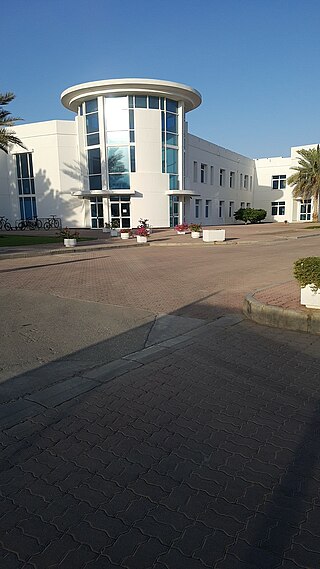
The American International School Muscat (TAISM) is an American curriculum international school in Muscat, Oman, serving early childhood through high school. Established in 1998, it is the sole American-only curriculum school in Oman.




